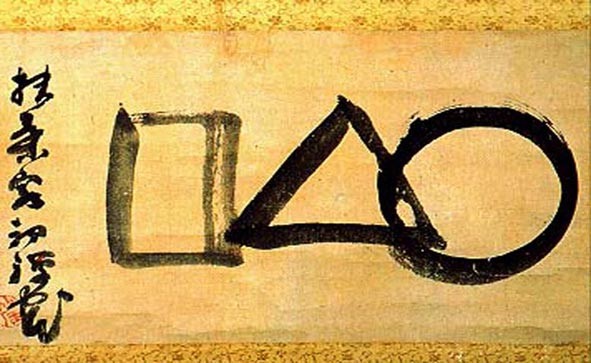The Zen rebels: obscure hermits and existential reformers (part 14). Sengai Gibon
In a clear night's sky, you can see the stars an if fortunate enough, away from the city lights you maybe able to view the inner rings of compressed stars and planets of the Milky Way. Upon viewing the magnificence of the planetary systems, without any attended purpose, when you look up at the night sky with an awareness that the Earth, is one of millions of planets within the Milky Way. It breifly, for a moment in time, removes the self from your self. However there's also an affliction in seeing the insignificance of oneself against this mass in front of us - the cosmos, which by its presence neither cares nor even is aware of our existence. Described by the French philosopher Blaise Pascal (1669) in Pensées:
“When I consider the short duration of my life, swallowed up in an eternity before and after, the little space I fill engulfed in the infinite immensity of spaces whereof I know nothing, and which know nothing of me, I am terrified. The eternal silence of these infinite spaces frightens me.”
What Zen did in countering that aspect of insignificance from the early philosophical and monotheistic leanings and the fear of being detached by the vastness of a Universe, is not so much that it was designed to create an impression of significance for the human mind, but rather to know that we have the Universe contained within the mind, its ours, to understand it, is not to be afflicted by its presence. The Universe maybe vast, empty and seemingly indifferent to humanity. But, we also are part of it, as it is part of us. Therefor, it is that discipline of meditation, developed by Zen Buddhism that the power to offset a feeling of nothingness, is to master it. To know the Void resides not only outside, it also manifests within. We create the worlds.
But, despite Eastern philosophy like Taoism and Ch'an (Zen) Buddhism, pointing towards the mind as the focus of reality rather than seeking answers elsewhere, it is not a critique of Western philosophy/science or even some of the early aspects of theistic religions. It is the importance of knowing that we are nothing in the cosmos, but at the same time everything within out selfs – this then removes the problem of the distinct human folly, that is our fears of disconnection. Although it is inherent and maybe an aspect of our nature. Still, as we study the various Zen Masters, particularly the ones that decided to embrace their hermitage, to be alone, to deal with the self as one perspective within two worlds, the reality that is of the internal and external. Set within the power of contentedness.
Sengai Gibon was a Zen Master, who lived through the beginning of Japan's isolationist militarization and the beginning of it becoming a global power, known as the Edo period, where Buddhism was cast back as a state sanctioned power to be replaced by Neo-Confucianism, a doctrine of governing control and personal responsibility in line with traditional values and work ethics. Very much like a conservative mindset that still resonates today throughout the world. The Zen Buddhist doctrine, clearly at loggerheads with the Confucius manifesto and its divisive viewpoints on the self and governing systems. Gibon, was able, from a young age, studying under the Rinzai school of Zen, to move forward as a focused and capable Master. It is unclear whether the reasserting of neo-Confucius thought under a political banner to modernize and also militarize Japan in the 1600's and 1700s had a effect on him to then, at 61, given the opportunity to be endowed under the Imperial Honor with the purple robe of an esteemed monk and to serve as a senior Abbott of the Hakata Zen temple. He rejected it, not even attending the ceremony. Assigning a heir to replace him, he then left the monastery to retire to Kyohakuin “The Empty White House.”
“Buddha had 80,000 monks
Confucius 3000 disciples.
I sit alone on a vine-covered stone
Watching the occasional cloud go by.”
“I came alone I will die alone
In between I remain alone night and day.
The I who came thus
The I who will pass away thus
Is the same
I living In this small hut all alone.”
And it is from this time of being a hermit, late in his life, through his calligraphy and paintings. One of the most profound pieces of art ever created by a Zen Master. “The Universe”. A expression of simplicity, but also within its minimalism in a true Zen form, it embraces this paradox of what is our place in the cosmos and its connection to us.


Comments
Post a Comment